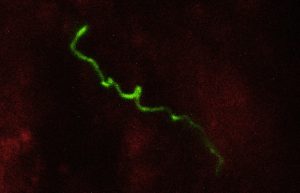
The Role of CD4 T Cell Responses in Persistent Borrelia Burgdorferi Infections

A study conducted by Elizabeth M. Hammond, et al., examining CD4 T cell responses associated with persistent B. burgdorferi (Bb) infections, has been published in Current Opinion in Immunology.
The researchers found that infecting mice with Bb triggers CD4 T cell activation in secondary lymphoid tissues, where they continue to spread into other various diseased tissues. Regardless of this activation and the associated CD4 T cell-dependent antibody responses, it was observed that Bb is nevertheless able to establish continued infection in Bb reservoir hosts despite the absence of overt disease. These findings call into question the efficacy of anti-Bb T cell responses.
After examining current publications, the scientists suggest that CD4 T cells may create a host cell target of Bb-mediated immune circumvention, thus causing these cells to unsuccessfully execute a beneficial inflammatory response as well as the inability to support the induction of efficient Bb-specific antibodies.
According to the researchers, these findings indicate that supporting the generation of more efficient CD4 T cell responses may aid in subduing persistent Bb infection.
Read a summary of the study on ScienceDirect.com.
Read more about Chronic Lyme Disease research.



